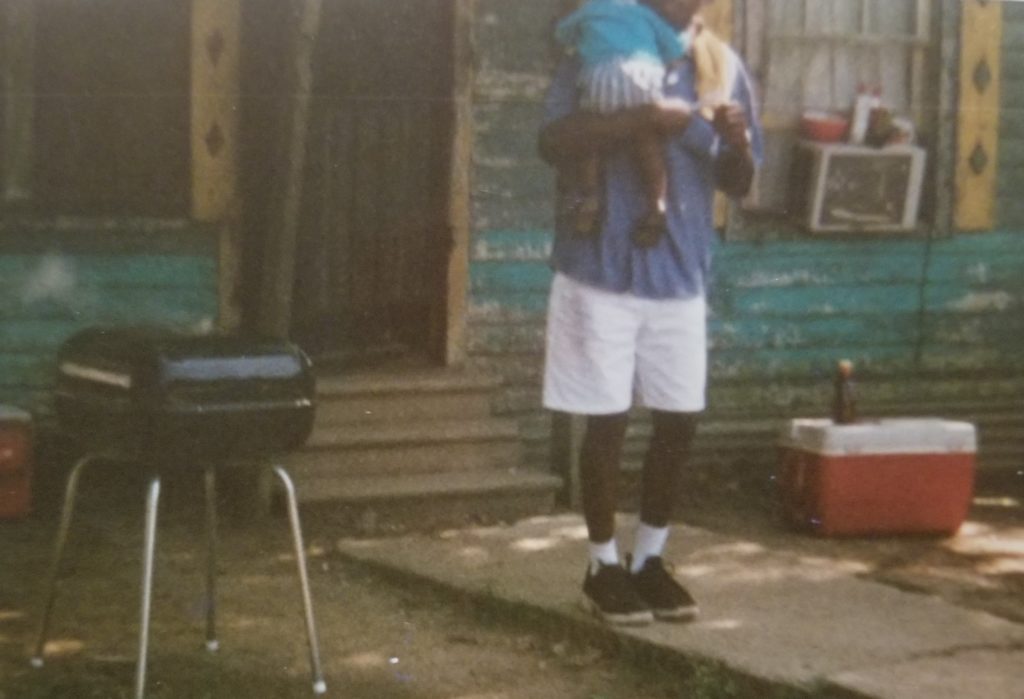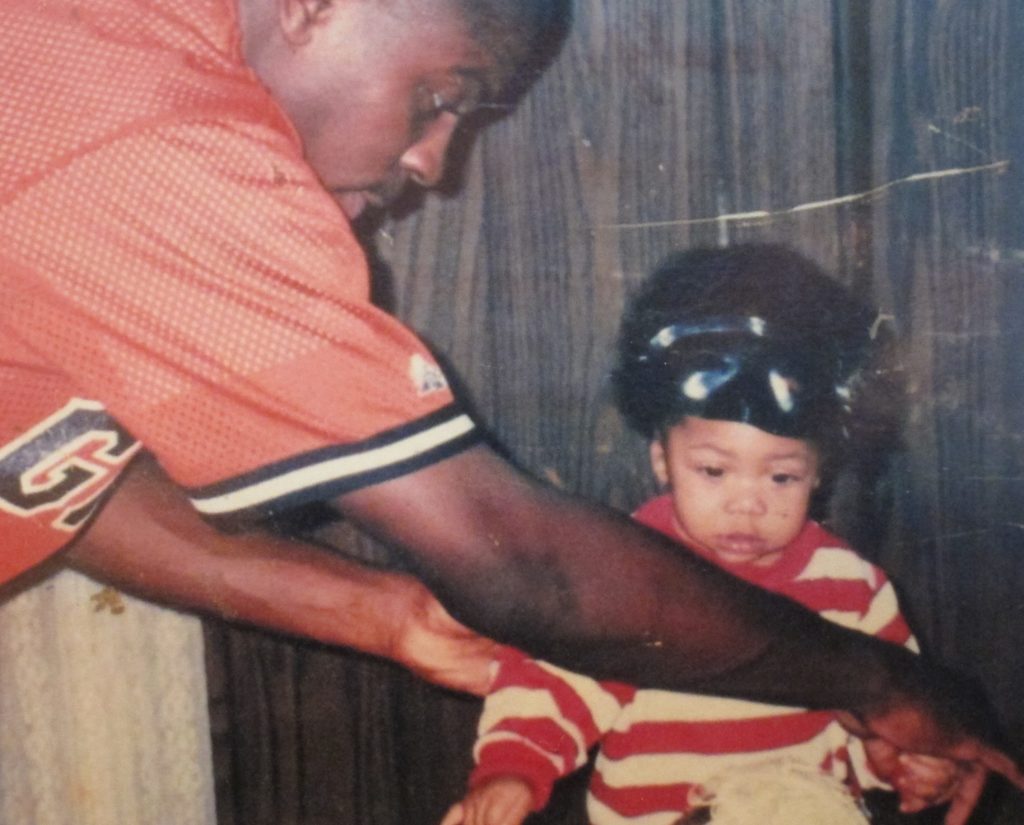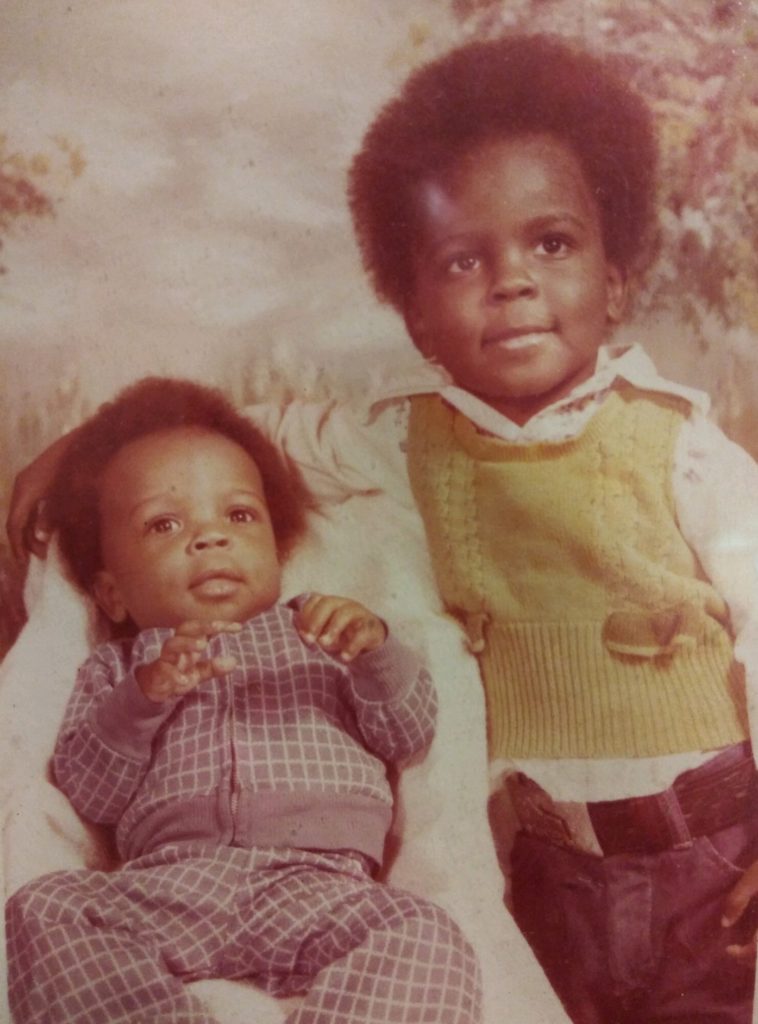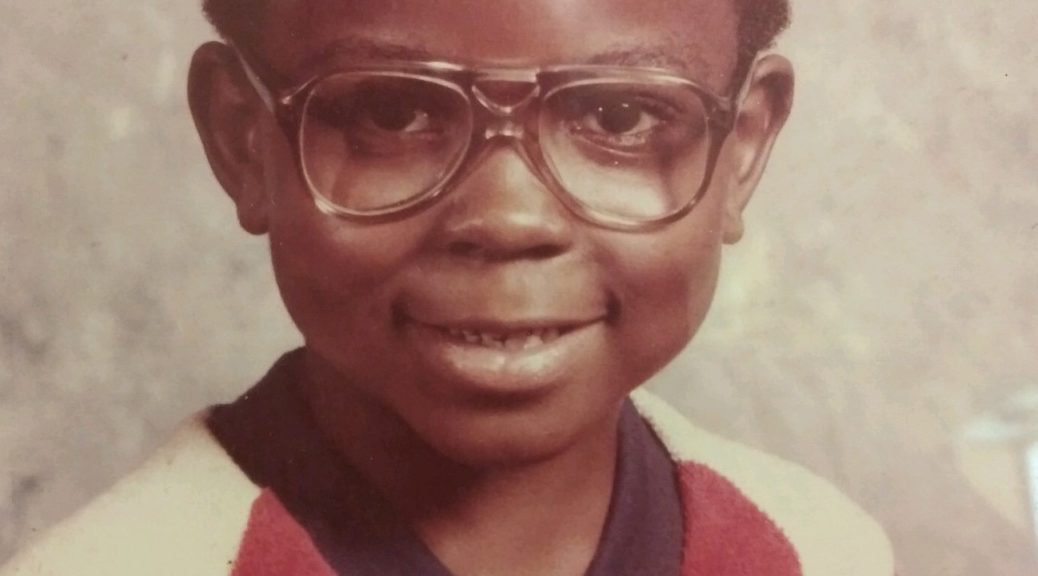“Please keep fighting for my son.” That was a text received from Charles Mamou’s mother. Her son was sentenced to death over twenty years ago in Houston, while the Harris County District Attorney’s Office was under the rule of Johnny Holmes, a man known for and proud of pursuing the death penalty.
The amount of information manipulated or not shared with the jury in the Mamou case is disturbing, but one aspect that gets overlooked, is the theatrics and misinformation put into destroying Mamou’s character for the jury. What they lacked in evidence, was made up for in portraying the defendant as a monster. And then they instructed the jury they could consider things they would ‘hear about his character’ when deciding the case. – Volume 24 of the Reporters’ Record at page 6.

But what did the D.A. really know about Charles Mamou?
Mamou got into the business of dealing drugs early on in his life. He wasn’t born into the ‘haves’ and knew his fair share of struggle. He struggled with school. He struggled with his health. He absolutely could have chosen a different path, but he saw an opportunity dealing drugs and the well-travelled avenue to taking care of the people he cared most about – not to mention keeping the hot water on. Hot water wasn’t something he always had growing up.

Over time, Mamou earned a reputation, but it wasn’t one for violence. As one resident of Sunset described him,
“Chucky was a respectable boy and a fine young man. I worked as a cook at Sunset Elementary School where Chucky attended. He was a quiet little boy and mainly kept to himself. To my knowledge, he did not have any behavior problems in school and his grades were either average or above average.
“When Chucky was older, he would often talk to my son about his problems. My son was on drugs and Chucky would advise him to do better things with his life. I wanted my son to be more like Chucky.
“There were times when I went shopping and Chucky was in the grocery store. He would buy my groceries and never wanted any money back. There were many other people in town that Chucky would help buy groceries, pay rent or their electric bill. Chucky helped people.”
Don’t get me wrong. There was nothing glamorous about what Charles Mamou did for a living. He wasn’t a violent man though. Regardless of how the prosecution described him for the jury, the people who knew him day in and day out had a more accurate perspective.
Another man that knew Charles Mamou, Jr., stating they met in the ‘streets’ and clubs, also described his friend.
“Chucky does not have a ‘rough bone’ in his body. I have witnessed him paying bills for friend, family members and other people in the community. Charles, Jr., is a friend that everyone wishes to have once in their life.”
“If it was the dope that put Charles, Jr., behind bars, I pray that everyone in the world would burn the dope, and start praying.”
It was the ‘dope’ that put Mamou behind bars.
In 1998 three men knowingly brought a girl to a dark alley in Houston, with a plan. According to everyone involved, including the testimony of the two surviving men – they were there for one reason and one reason only. They were there to rob Charles Mamou at gunpoint. That’s it.
That was the plan, but it didn’t work out the way it was supposed to. Mamou started shooting when confronted with a gun pointed in his direction. His driver drove off and left him behind. He jumped in the car that belonged to the men who were attempting to rob him and drove back to the apartment complex on Fondren, in Houston, where he was staying and where the other individuals who helped organize the drug deal were located. All of the existing evidence supports that, including things Mamou said he observed when he got back to the apartments, which observations have been confirmed by statements the jury never heard, as well as evidence that existed.
The greatest injustice in this story – was the lack of effort to find out what really happened to the victim after she got to the apartment complex that night. There was no effort made to pursue possible answers, including tracking a cell phone call that one of the involved parties made that night – from who knows where. That individual said he was in bed sleeping – but the police knew his cell phone made a phone call at 2:37 a.m. on the night in question. One would think tracking a cell phone call from a suspect and the driver in the drug deal would be standard, especially in light of the fact that individual claimed to have been sleeping and not making or receiving phone calls at the time. He lied. His cell phone made a call from somewhere at 2:37 a.m. The police documented that information the week of the murder, although they never pursued it, and faxed the phone records to the District Attorney after the court proceedings began.
Charles Mamou only just became aware those phone records existed and were in the hands of the Houston Police Department and the District Attorney twenty years ago.
The prosecution didn’t pursue the information they had that might uncover what happened to the victim, but were more focused on convincing the jury that Charles Mamou was a monster.
And so, even though the medical examiner, Roger Milton, never mentioned a rape kit that was collected in his Autopsy Report, and even though the District Attorney requested the rape kit be processed and received the results of the rape kit prior to the trial – that information was also never shared with Charles Mamou. Mamou never knew a rape kit was gathered until last year.
Rather than share that information with the jury, Lyn McClellan, an Assistant District Attorney for Harris County did something else. He and his team chose to tell the jury that Charles Mamou sexually assaulted the victim. The entire time he was doing that, he knew full well a rape kit had been collected – and it revealed no semen found on any items.
“And he takes her to Lynchester. He marches her to the back, and he makes her commit oral sodomy, makes her suck his penis. Imagine that, ladies and gentleman.” – Volume 24 of the Reporter’s Record at page 38. That same attorney went on to describe Mamou’s character, “He’s vicious.” “He’s ruthless.” “He’s cold-blooded.” “He devastated and destroyed.”
The prosecution had no evidence that Charles Mamou did anything to Mary Carmouche. They had phone records Mamou didn’t know about. They had a rape kit Mamou didn’t know about. And something else they’ve had all these years – ‘trace evidence’, ‘hairs’ that were collected during the collection of the rape it. That evidence sat in the HPD Property Room for twenty years, and Charles Mamou nor the jury were ever informed they existed.
Of note, in 2019, two envelopes containing ‘biological evidence’ in this case were signed out of the Property Room, but it is unknown for what purpose or who authorized the removal, as HPD will not respond, other than to tell me the D.A. is the only one who can authorize removal of evidence. At the D.A.’s office I was told they didn’t know anything about the removal of the evidence.
Years ago, Chris Mamou described his brother in a statement.

“Growing up, I can always remember my brother being there and looking out for me.”
“…he taught me how to walk with my head up high.”
“…he took me to the basketball court and tried to teach me how to play.”
“Charles, Jr., encouraged me to excel in school by rewarding me with praises and benefits, such as paying for my way to the neighbor dance if I had a good report.”
“…nothing would compare to the feeling of just making him proud which also encouraged me to do well.”
“All I knew was he had his own money and he shared with everyone – family, friends, or a stranger who needed help. I saw this and wanted to do the same thing. I approached him about making my own money and was denied, remembering his reasoning was that this was not for everybody. He did not want me to get involved.”
Charles Mamou has spent over twenty years on death row and awaits his execution for a drug deal gone wrong– not a murder. Investigators didn’t pursue what happened to Mary Carmouche after she arrived at that apartment complex. They were focused on ‘making’ Charles Mamou guilty – but none of the pieces fit. No matter which way you turn the puzzle, they won’t fit. Sticking to the ‘story’ isn’t going to make it any more true than it was twenty years ago. Mamou can be executed – it’s not going to make it true. He can die incarcerated during a pandemic – it still won’t make it true.
“He’s my firstborn. He has my name.” Charles Mamou, Sr., will never give up on his son. He recently told me, “If they want to kill an innocent man – take me. Don’t take him – take me.”
All posts and details of this case, including phone records that were not shared with the defense, a letter from the ‘key witness’ stating he didn’t know anything, and how Mamou was even accused of an unsolved murder during his trial can be found here. Anyone with information regarding this case can contact me at kimberleycarter@verizon.net. There is also a facebook page dedicated to sharing the truth.
TO CONTACT CHARLES MAMOU:
Charles Mamou #999333
Polunsky Unit 12-CD-53
3872 South FM 350
Livingston, TX 77351
![]()
